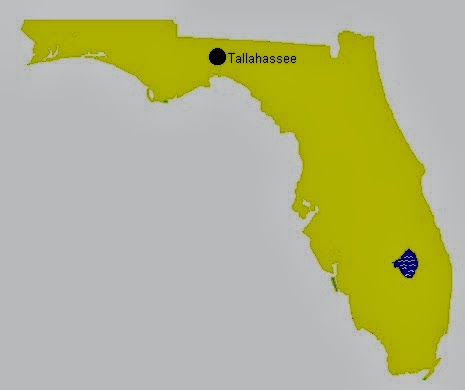Most civil and criminal cases in Florida originate at the circuit court level. The circuit courts are courts of general jurisdiction, handling such matters as domestic relations, major criminal offenses, probate issues, civil cases involving amounts greater than $15,000, and appeals from county courts.
State Court System
Thursday, February 27, 2014
The Florida Circuit Courts and The Florida County Courts
Most civil and criminal cases in Florida originate at the circuit court level. The circuit courts are courts of general jurisdiction, handling such matters as domestic relations, major criminal offenses, probate issues, civil cases involving amounts greater than $15,000, and appeals from county courts.
The Florida Supreme Court and The Florida District Courts
The Florida court system consists of the Florida Supreme Court, district courts
of appeal, circuit courts, and county courts. As the name suggests, the Florida
Supreme Court is the highest court in the state. Located in Tallahassee, the
Florida Supreme Court is composed of seven justices. Five justices must be
present in order to conduct business and at least four justices must agree on a
decision in each case.
The Florida Supreme Court must hear all judgments imposing the death penalty, district court decisions declaring a state statute or provision of the state constitution invalid, bond validation judgments, and actions of statewide agencies relating to public utilities. The Florida Supreme Court has discretion in hearing decisions of district courts of appeal that expressly declare a state statute valid; questions certified by the district courts of appeal as being of great public importance; or decisions where the district courts are in conflict with one another.
There are five district courts of appeal in Florida, each covering a geographic district. Judges sit in panels of three and decide appeals from circuit courts in most criminal and civil cases. They also have jurisdiction to decide appeals from county courts when a state statute or provision of the state constitution is held invalid, or for orders or judgments certified to be of great public importance. As a practical matter, the district courts of appeal are the final appellate review of litigated cases. Someone displeased with a district court's decision may seek review in the Florida Supreme Court or in the U.S. Supreme Court.
The Florida Supreme Court must hear all judgments imposing the death penalty, district court decisions declaring a state statute or provision of the state constitution invalid, bond validation judgments, and actions of statewide agencies relating to public utilities. The Florida Supreme Court has discretion in hearing decisions of district courts of appeal that expressly declare a state statute valid; questions certified by the district courts of appeal as being of great public importance; or decisions where the district courts are in conflict with one another.
There are five district courts of appeal in Florida, each covering a geographic district. Judges sit in panels of three and decide appeals from circuit courts in most criminal and civil cases. They also have jurisdiction to decide appeals from county courts when a state statute or provision of the state constitution is held invalid, or for orders or judgments certified to be of great public importance. As a practical matter, the district courts of appeal are the final appellate review of litigated cases. Someone displeased with a district court's decision may seek review in the Florida Supreme Court or in the U.S. Supreme Court.
Map of the State Court System
This is a basic example of the State Court System, states have the power to create courts and develop a structure unique to it's laws and procedures. Various states of the United States have exercised this power either by constitutional provisions or statutory enactments.
Monday, February 24, 2014
How do State Courts work?
States usually have courts that handle specific
legal matters, e.g., probate court (wills and estates); juvenile court; family
court; etc. Parties dissatisfied with the decision of the trial
court may take their cases to the intermediate court of appeals. Parties have the option to ask the highest state
court to hear the case. Only certain state court cases are eligible for
review by the U.S. Supreme Court.
What is the State Court System?
The Constitution and laws of each state establish
the state courts. A court of last resort, often known as a supreme court, is
usually the highest court in a state. Some states also have an intermediate
court of appeals. Below these appeals courts are the state trial courts. Some
are referred to as circuit or district courts.
Subscribe to:
Comments (Atom)




